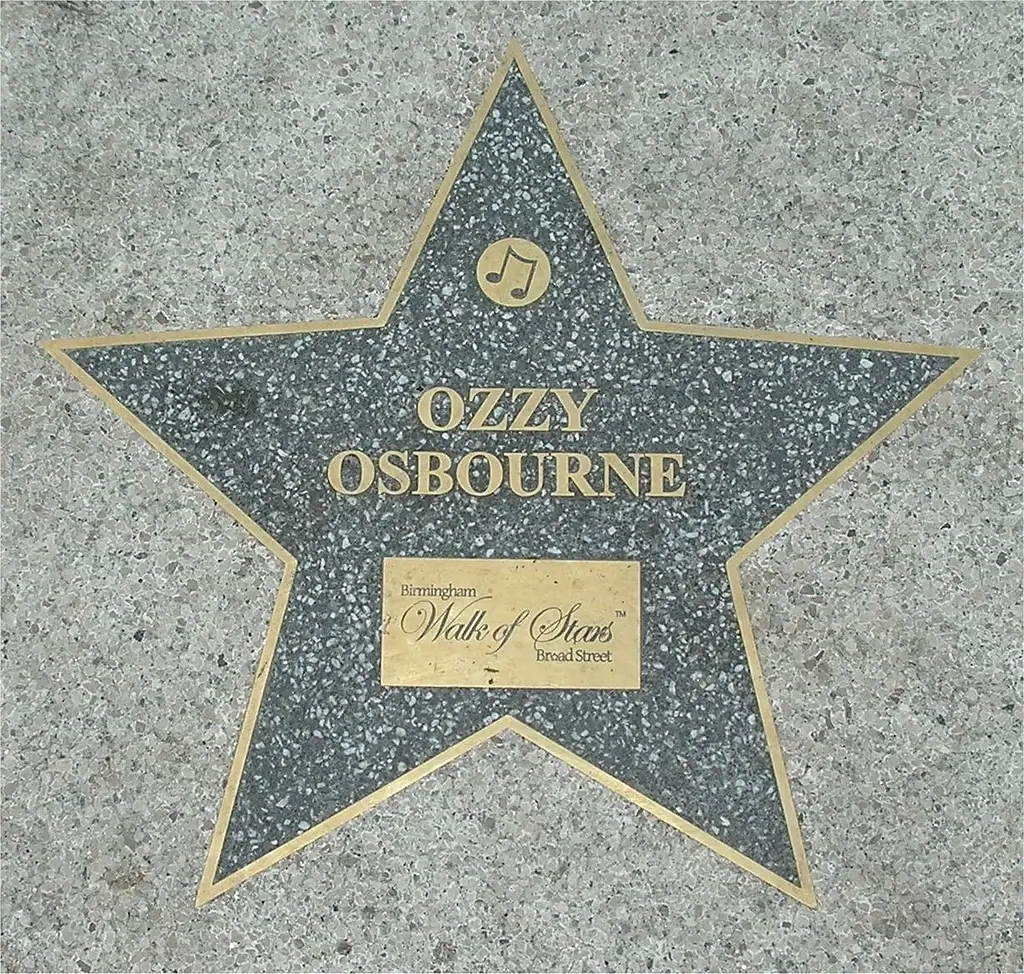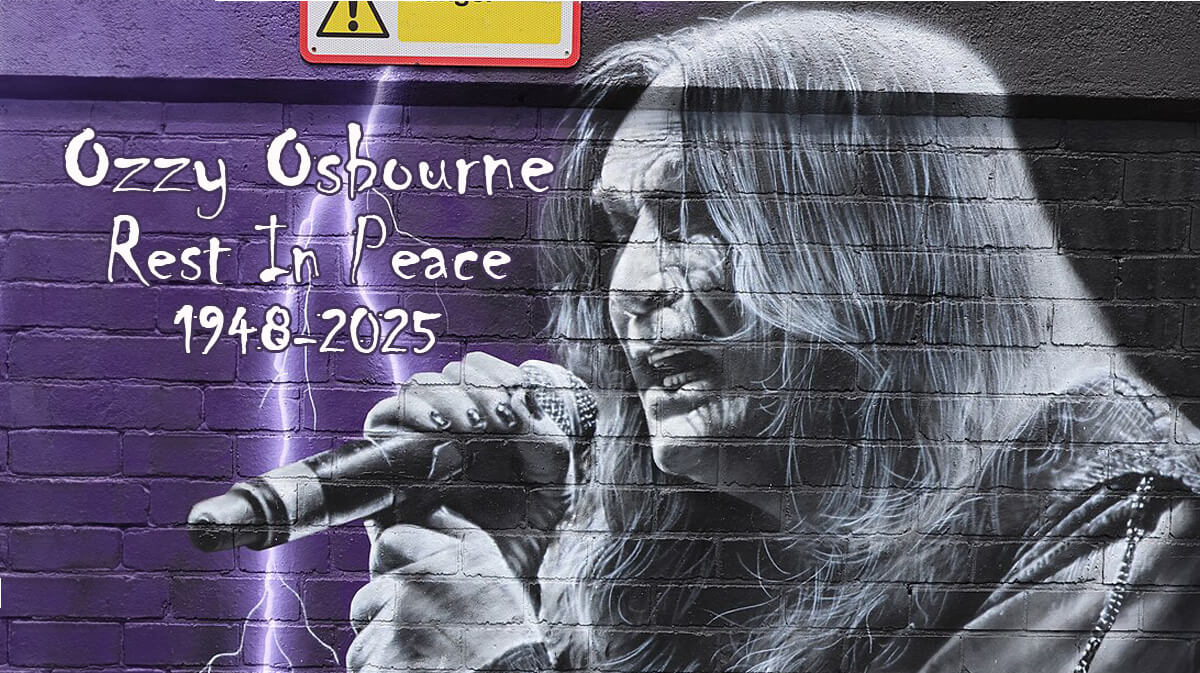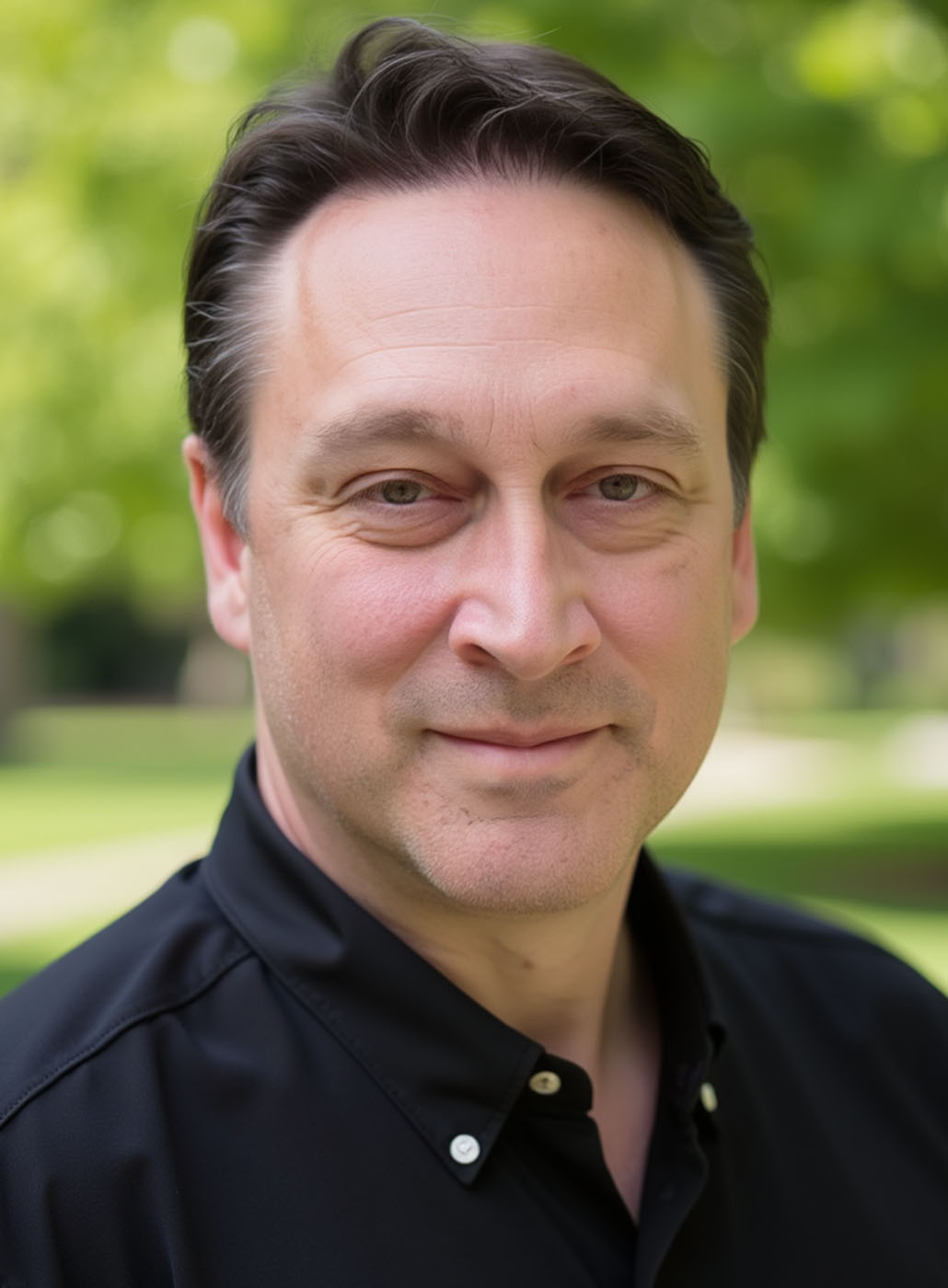
Ozzy Osbourne, the legendary heavy metal singer who became a global icon as the frontman of Black Sabbath and later as a solo artist, has died at age 76, his family announced Tuesday morning. The "Prince of Darkness" passed away peacefully, surrounded by loved ones, just weeks after what was billed as his final concert performance.
"It is with more sadness than mere words can convey that we have to report that our beloved Ozzy Osbourne has passed away this morning," the family statement read. "He was with his family and surrounded by love. We ask everyone to respect our family privacy at this time."
A Final Farewell Performance
Osbourne's death comes just 17 days after he reunited with the original Black Sabbath lineup for what was described as their final concert, a festival titled "Back to the Beginning" in Birmingham, England – the band's hometown. The July 5th performance at Villa Park drew 42,000 fans and featured an all-star lineup including Metallica, Guns N' Roses, Slayer, Tool, Pantera, Alice in Chains, and numerous other metal legends paying tribute to the pioneering band.
Ozzy's Famous Final Concert Words (July 5, 2025): "Let the madness begin!" - to 42,000 fans at his final Black Sabbath performance
"Let the madness begin!" Osbourne told the massive crowd during what would prove to be his final public performance. The emotional farewell concert featured guest appearances from Tom Morello, Aerosmith's Steven Tyler, Billy Corgan, Rolling Stones' Ronnie Wood, Travis Barker, and many others, creating a fitting tribute to Osbourne's immense influence on rock and metal music.
The timing of his death, so soon after this triumphant final performance, has added poignancy to an already emotional farewell for fans worldwide who gathered to witness the end of an era in heavy metal history.
Black Sabbath: Inventing Heavy Metal
Born John Michael Osbourne on December 3, 1948, in Birmingham, England, Ozzy grew up in a working-class family in the industrial city still bearing scars from World War II bombing. After a troubled youth that included dropping out of school at 15 due to undiagnosed dyslexia and ADHD, and a brief stint in jail for theft, Osbourne turned to music as his salvation.
In 1968, he co-founded Black Sabbath with Tony Iommi, Geezer Butler, and Bill Ward. The band's dark, heavy sound and occult imagery essentially created the heavy metal genre, influencing countless musicians and spawning an entire musical movement. Their 1970 debut album "Black Sabbath" and follow-up "Paranoid" are considered foundational works of heavy metal.
Black Sabbath's innovative sound combined blues-based rock with darker themes, heavier guitar riffs, and Osbourne's distinctive wailing vocals. Songs like "Iron Man," "War Pigs," and "Paranoid" became anthems for generations of metal fans and established templates that countless bands would follow.
The band was inducted into the Rock & Roll Hall of Fame in 2006, cementing their status as one of the most influential groups in rock history. Despite various lineup changes and reunions over the decades, the original quartet's chemistry remained unmatched.
Solo Career and "Blizzard of Ozz"
After leaving Black Sabbath in 1979 due to creative differences and substance abuse issues, Osbourne launched a remarkably successful solo career that would span over four decades. His 1980 debut solo album "Blizzard of Ozz" restored his commercial fortunes and introduced the world to guitarist Randy Rhoads, whose virtuosic playing complemented Osbourne's powerful vocals.
The album, which went quadruple-platinum in the United States, featured "Crazy Train," one of Osbourne's most enduring solo hits. The song's iconic opening guitar riff and Osbourne's memorable "All aboard!" became instantly recognizable to music fans around the world.
His solo career produced 13 studio albums, with the first eight achieving platinum status in the United States. He won five Grammy Awards as a solo artist and created memorable songs including "Shot in the Dark," "Close My Eyes Forever" (with Lita Ford), and "Mama, I'm Coming Home."
Throughout his solo career, Osbourne was managed by Sharon Arden, whom he married in 1982. Sharon became instrumental in managing both his professional career and personal struggles with addiction, helping to stabilize his life and career during turbulent periods.
Ozzfest and Cultural Impact
In 1996, Osbourne and Sharon created Ozzfest, an annual touring festival that became one of the biggest box office attractions of the 1990s and 2000s. The festival, born after Osbourne was rejected from the Lollapalooza lineup, showcased both established and emerging heavy metal and hard rock acts.
Ozzfest helped launch or boost the careers of numerous bands including Slipknot, Tool, Megadeth, Rob Zombie, System of a Down, Limp Bizkit, and Linkin Park. The festival became a cultural institution, providing a platform for heavy music and cementing Osbourne's role as a kingmaker in the metal world.
The festival's success demonstrated Osbourne's understanding of his audience and his ability to adapt to changing musical landscapes while maintaining his core identity as the Prince of Darkness.
"The Osbournes" and Reality TV Fame
In 2002, Osbourne gained an entirely new audience through the MTV reality series "The Osbournes," which followed his family life at home. The show, which ran for four seasons and 52 episodes, revealed a different side of the rock icon – that of a befuddled but loving family patriarch dealing with everyday domestic situations.
"The Osbournes" became a cultural phenomenon, showing audiences a more vulnerable and human side of the man who had spent decades cultivating his Prince of Darkness image. New York Times critic Caryn James described the family as "a wacky, harmlessly outrageous variation on Everyfamily, as full of warmth as they are of weirdness."
The show's success demonstrated Osbourne's natural charisma and comedic timing, earning him new fans among younger generations who may not have been familiar with his musical legacy. It also showcased the strong family bonds that anchored Osbourne's personal life despite his wild public persona.
Legendary Antics and Controversies
Throughout his career, Osbourne became notorious for outrageous behavior both on and off stage. His most infamous moment occurred in 1982 when he bit the head off a bat during a concert in Des Moines, Iowa. Osbourne later explained that he thought the bat was a rubber toy thrown by a fan, only realizing it was real after the deed was done.
Other legendary incidents included urinating on the Alamo in San Antonio while wearing a dress (leading to his arrest) and biting the head off a dove during a record company meeting. These acts, while shocking, became part of his mystique and helped establish his reputation as rock's ultimate bad boy.
His concerts were theatrical affairs where audiences might be mooned, spat on, or hectored to participate, but Osbourne would typically send crowds home with his ears ringing and a hearty "God bless!" – revealing the showmanship behind the shocking behavior.
Legal Battles and Moral Panic
Osbourne's dark imagery and themes made him a frequent target of religious groups and moral crusaders. In 1987, he was sued by the parents of a 19-year-old who died by suicide while listening to "Suicide Solution." The lawsuit was ultimately dismissed, with Osbourne explaining that the song was actually about the dangers of alcohol abuse and was inspired by the death of AC/DC's Bon Scott.
Cardinal John J. O'Connor of New York claimed in 1990 that Osbourne's songs led to demonic possession and suicide. Osbourne responded with characteristic directness: "You are ignorant about the true meaning of my songs. You have also insulted the intelligence of rock fans all over the world."
These controversies, while challenging personally, only enhanced Osbourne's reputation as a counterculture figure and defender of artistic freedom, earning him respect from fellow musicians and free speech advocates.
Health Struggles and Parkinson's Diagnosis
In recent years, Osbourne's health became a growing concern for fans. He revealed in 2020 that he had been diagnosed with Parkinson's disease after suffering a serious fall. The diagnosis helped explain some of the physical difficulties he had been experiencing, including tremors and mobility issues.
Despite his health challenges, Osbourne continued performing and recording. His 2020 album "Ordinary Man" was the first he completed while sober and featured collaborations with Elton John, Guns N' Roses guitarist Slash, and Post Malone. In 2019, he had a Top 10 hit when featured on Post Malone's "Take What You Want," his first song in the Top 10 since 1989.
His penultimate album was described by critics as "filled with lyrics befitting of his Prince of Darkness moniker" dealing with mortality, past drug use, and regret – themes that took on new poignancy given his health struggles.
Industry Tributes Pour In
Ronnie Wood (Rolling Stones): "I am so very sad to hear of the death of Ozzy Osbourne."
Ali Campbell (UB40): "Rest In Peace Ozzy. The Prince of Darkness. A true Birmingham legend. The undisputed king of heavy metal. You didn't just shape a culture, you defined it. You led from the front and never looked back. My thoughts are with Sharon and the entire Osbourne family during this time."
Following news of Osbourne's death, tributes began flooding in from across the music industry. Metallica posted a photo of the band with Osbourne along with a broken heart emoji. Rolling Stones guitarist Ronnie Wood wrote: "I am so very sad to hear of the death of Ozzy Osbourne."
Ali Campbell of Birmingham band UB40 wrote: "Rest In Peace Ozzy. The Prince of Darkness. A true Birmingham legend. The undisputed king of heavy metal. You didn't just shape a culture, you defined it. You led from the front and never looked back."
Black Sabbath's surviving members issued their own statement saying they had "lost our brother" and praising Osbourne's contributions to music and culture. The band's co-founder expressed gratitude for the decades of friendship and musical collaboration that had defined their lives.
A Lasting Legacy
Osbourne's influence on heavy metal and rock music cannot be overstated. As the frontman of Black Sabbath, he helped create an entirely new genre of music that would influence countless artists across multiple generations. His solo career demonstrated remarkable longevity and adaptation, while his larger-than-life personality made him one of rock's most recognizable figures.
He was twice inducted into the Rock & Roll Hall of Fame – once with Black Sabbath in 2006 and again as a solo artist in 2024 – recognizing both his collective and individual contributions to music. His visual style, from his long black hair and makeup to his cross necklaces and dark clothing, became iconic and widely imitated.
Beyond music, Osbourne helped break down barriers between high and low culture, bringing heavy metal into mainstream consciousness while maintaining his underground credibility. His reality show success demonstrated the broad appeal of his personality, while Ozzfest created new opportunities for emerging artists.
Final Chapter
Family Statement: "It is with more sadness than mere words can convey that we have to report that our beloved Ozzy Osbourne has passed away this morning. He was with his family and surrounded by love. We ask everyone to respect our family privacy at this time."
Osbourne is survived by his wife Sharon and children Jack, Kelly, Aimee, and Louis. His death marks the end of an era in heavy metal music, closing the chapter on one of the genre's most important and influential figures.
From his humble beginnings in post-war Birmingham to his status as a global icon, Osbourne's journey embodied the transformative power of rock and roll. His music provided an outlet for alienation and rebellion while his personal struggles with addiction and health issues made him a relatable figure to fans facing their own challenges.
As tributes continue to pour in from around the world, it's clear that Ozzy Osbourne's legacy as the Prince of Darkness will endure, inspiring future generations of musicians and fans to embrace the power and catharsis of heavy metal music.
Sources: The Guardian, Los Angeles Times, USA Today, Sky News, BBC News, Variety, TMZ, PBS News, NPR, family statement






